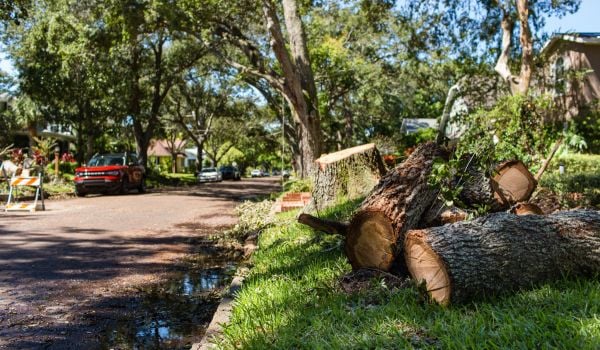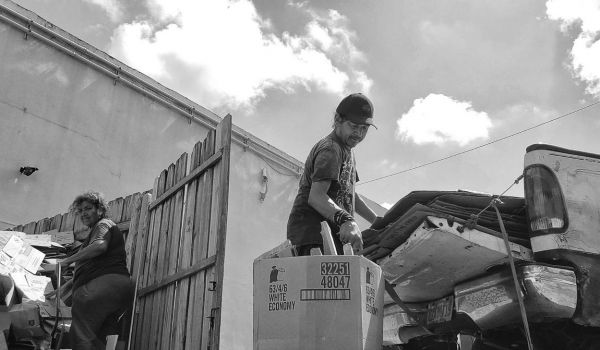In April 2020, William Steele, a 62-year-old prisoner serving a life sentence, walked out of the Everglades Correctional Institution (ECI) as a free man, becoming one of the few incarcerated people to be paroled each year in Florida.
“I was lucky to have so much help inside and out,” he said.
After serving 30 years behind bars for first-degree murder, Steele was released through the Florida International University-Corrections Transitional Program (FIU-CTP), a unique prison program that gives a select number of prisoners serving life a chance at a future.
The Florida Department of Corrections (FDC) eliminated parole for lifers in 1995, but anyone receiving a life sentence prior to that year is eligible for release after serving the 25-year mandatory minimum sentence.
Founded in 1999 by Marta Villacorta, then-warden of the South Florida Reception Center, and FIU criminal justice professor Regina B. Shearn, the FIU-CTP program prepares long-term prisoners who are eligible for parole to go back into society.
FIU-CTP helps men ‘de-prisonize.’ This means leaving behind the institutional habits that accumulate over many years of incarceration and focus on transitioning home.
Growing up in rural central Florida on the Jersey Jug Dairy Farm, riding horses at the Windy Acres Club, Steele never thought he would live a life of crime.
“I had a carefree childhood,” he wrote in an email. “I had toys, pets, friends and fond memories of church. But in my teens, I gravitated towards drinking and using drugs.”
Steele excelled in math and science, attended a vocational school and learned skilled trades like welding. Belko Steel hired him to work at Cape Canaveral, building projects like launch pads for the space shuttle program. Then he started working the graveyard shift at Disney as a welder and set designer.”
After marrying his long-term girlfriend Rose in 1985, the couple had three daughters, collected classic trucks and owned multiple homes. Steele loved his growing family, but over time, his recreational drug use turned into a full-blown addiction.
“I started abusing stimulants because I worked the overnight shift and it helped me stay awake,” he said.
After a car accident in 1988, Steele used drugs to cope with the pain and frustration over his inability to work, and he was eventually introduced to crack cocaine.
“I became a terrible addict for two years,” he admitted. “Crack takes everything from you…your morals, values and self-respect. My family and friends started turning out their lights when I drove up to their house.”
Steele tried to overdose and woke up in a bathtub surrounded by fellow addicts reviving him.
Shortly after, on May 10, 1990, Steele was arrested for first-degree murder. “I was 32 and carrying a life sentence when I walked through those gates. My biggest fear was dying alone without anyone I loved around.”
Do Your Time, Don’t Let Your Time Do You
Steele made a decision to put his life “in God’s hands.” In prison, he stayed sober, enrolled in self-betterment programs and dedicated his free time to studying business management and culinary arts. He leveraged his experience in skilled trades to work as a welder and HVAC technician — some of the few paying jobs in the prison system.
Steele also worked as a peer facilitator in faith- and character-based programs, learned computer programming and fine-tuned his skills.
“I took every class available,” he said. “I really enjoyed helping other men. My family saw the change in me, and I started getting regular visits from my three daughters.”
In 2016, after two decades of successful progress and personal growth, Steele neared the end of his 25-year minimum mandatory sentence.
When the FDC ended parole for lifers in the nineties, it was partly due to the Florida Sheriffs Association and Police Benevolent Association publicly opposing rehabilitation for lifers.
For those who were grandfathered in and still eligible for parole, there were no programs to help them and the parole board rarely released anyone: FIU-CTP helped change this in 2001 after Shearn developed the curriculum into a highly-respected transition option that boasted a 3% recidivism rate.
Currently, the Florida Commission on Offender Review (FCOR) has jurisdiction over approximately 3,900 parole-eligible prisoners. Its examiners have the authority to release them via the FIU-CTP program at the Everglades.
“When the examiner did my interview, he was impressed and referred me to FIU-CTP,” Steele remembers. “The program is one of the only paths to freedom for anyone on parole, so the participants are affectionately called the Men Going Home.”
Steele was transferred south to ECI where the FIU-CTP program is located. The classes are tailored to the hurdles facing parolees. They include information about transitioning into today’s society, victim impact, anger management, community re-entry, parole reporting and employability. FIU students and volunteers, including Shearn, provide counseling and mentorship.
After almost four years in the FIU-CTP dormitory, Steele finally received what he’d worked so hard for — a final hearing to determine his release date.
“I was told by the FCOR that I was going home after nearly thirty years in the penitentiary. There are only about fifteen men a year released on parole from FIU-CTP, and on April 12, 2020, I was one of them.”
The Return to Normal Life
With the help of his ex-wife, three daughters and ten loving grandchildren, Steele was able to acquire clothing, food, an iPhone and a used sedan while he lived in a Tampa halfway house for four months on strict parole conditions.
Due to COVID-19, the Ready4Work Program that helps formerly incarcerated people find employment was temporarily closed, forcing Steele to improvise.
“I started to do renovation work and side jobs. Then I opened a checking account, renewed my driver’s license and bought health insurance. I started my life over again, with the help of my amazing family.”
Steele moved in with his daughter in Jacksonville and continued to do renovations, getting business through word of mouth.
After only five months out of prison, Steele opened up Renewed Renovations, a licensed and insured small business.
He spends time with his kids and sons-in-law, attends Narcotic Anonymous meetings, adheres to his parole conditions, and even drove 600 miles roundtrip to visit the FIU-CTP program in Miami, mentoring the participants through an alumni program.
Alan Cohen, a transition coordinator for an ECI program, calls him a success story. “He’s like no one I’ve ever met. William is intelligent and unrelenting, and he never slows down.”
Last April, after only being out a year and far away from the despair of a prison yard, he bought a home and a truck with money from his thriving business.
As mandated by the Florida criminal justice system, Steele will remain on parole for the rest of his life, but even though the Department of Corrections still sees him as inmate #34856, in the eyes of his family, he is a free man.
Steele accepts responsibility for his actions.
“At times, I wonder what my victim would be doing with his life if I had not taken it. I have apologized to his family, but I cannot change the past,” he wrote to the parole commission in his mandatory 12-months release report. “Only how I live in the present and future can atoll for the tragedy and loss I caused. Now I just want to make a positive impact on all those within my sphere of influence.”
Ryan M. Moser is a formerly incarcerated journalist from Philadelphia. Nominated for a 2020 Pushcart Prize and Best of the Net 2021, he’s had work published by the Mississippi Quarterly, Upstreet Literary Magazine, Muse Literary Journal, Evening Street Press, Storyteller, Santa Fe Literary Review, Miami Herald, The Covid Collection, University of Iowa Prison Project, Progressive and other publications. Ryan enjoys yoga, martial arts and chess, and has two beautiful boys.

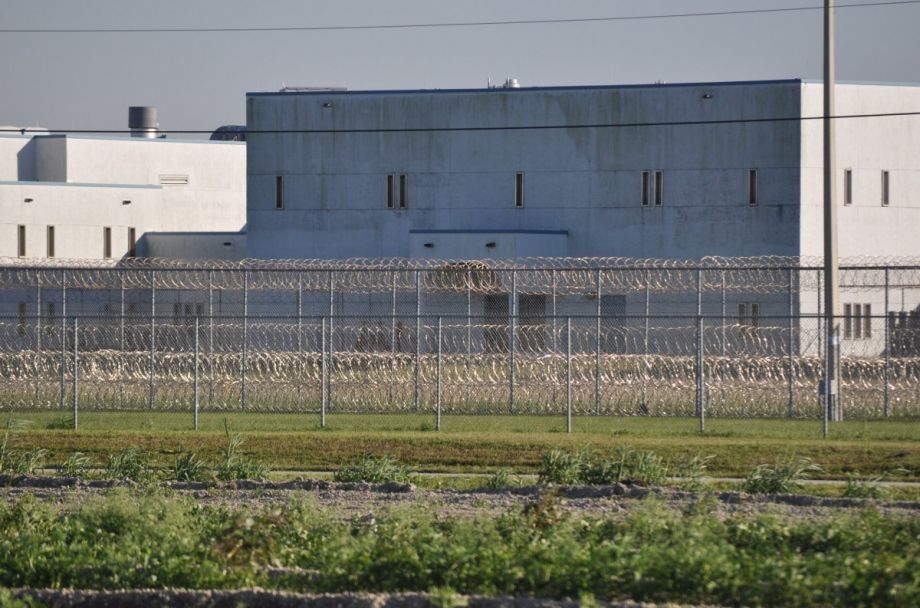
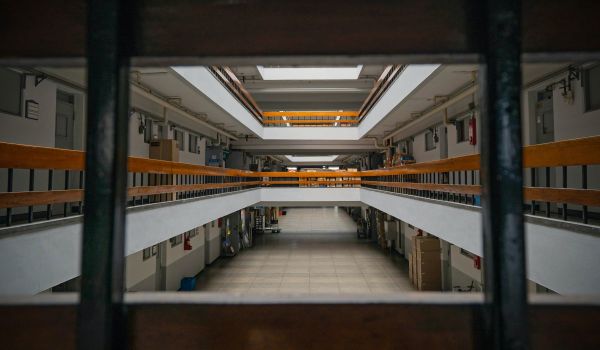
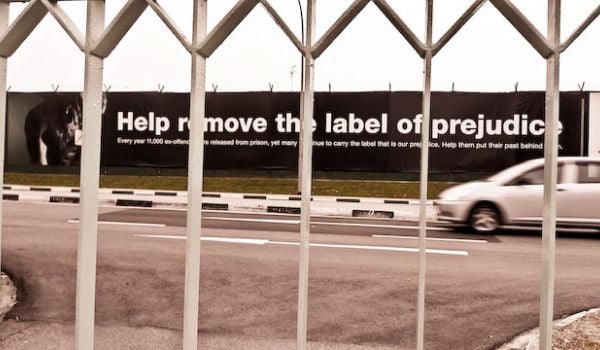

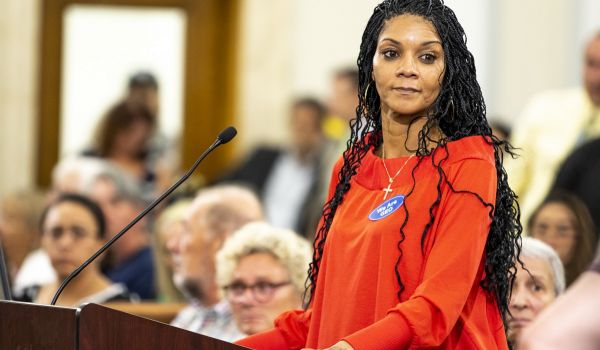

_600_350_80_s_c1.jpeg)
